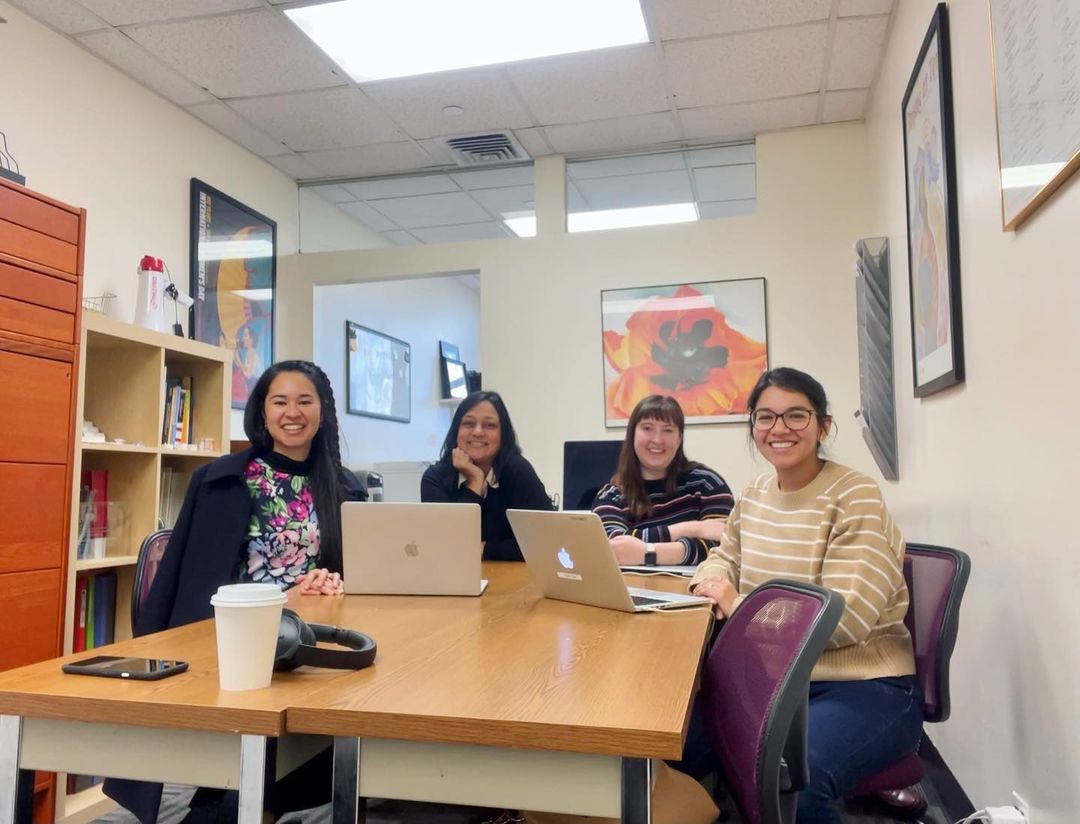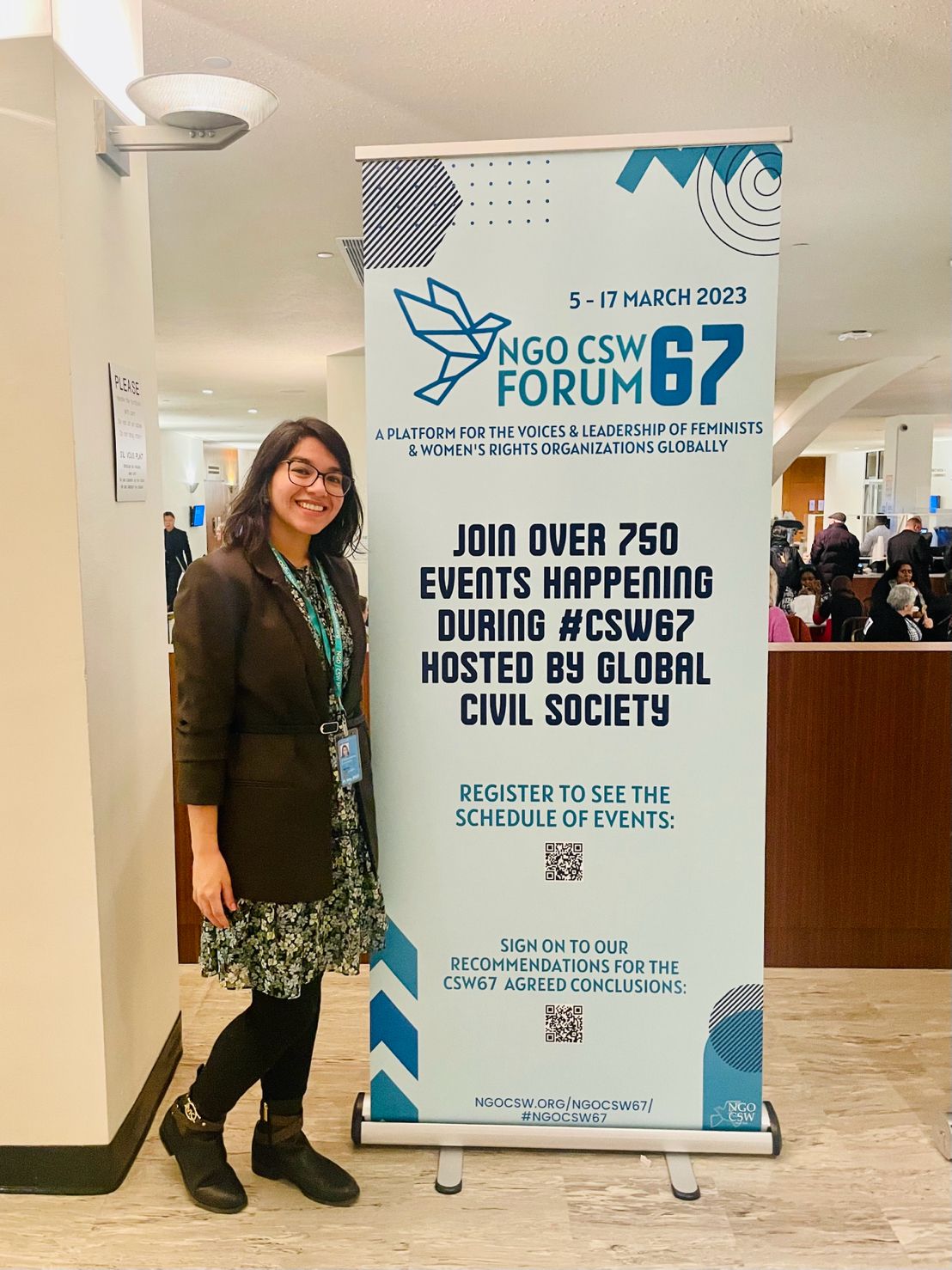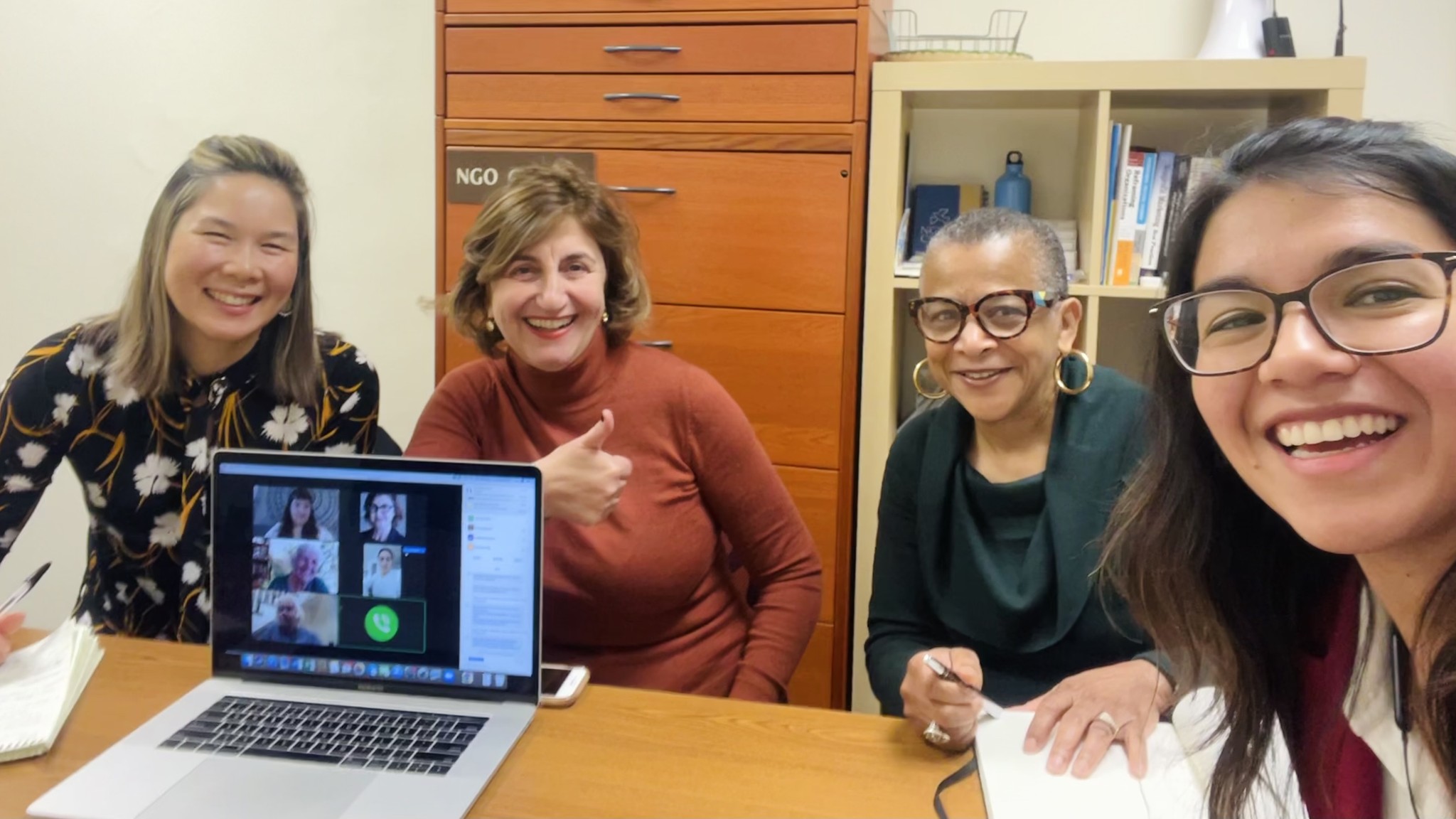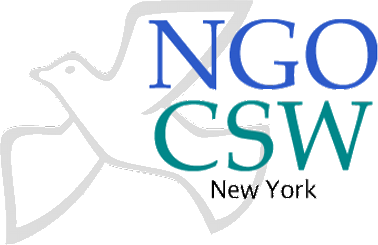
I started the communications intern role for NGO CSW/NY in August 2022. Learning about the NGO CSW67 Forum and how important it is to feminist leaders was my first challenging task. As a Latin American activist, I have been involved in campaigns where big institutions like the government take months or even years to listen to advocates' requests or encourage a dialogue. Therefore, I considered the work of NGO CSW/NY very valuable as an intermediary to make these bridges between civil society and the United Nations.
The passion of my colleagues was something that I realized since the first week. They are very committed to provide advocates with resources but also with digital spaces where they can promote their projects or connect with other like-minded organizations. As an example, the development of the Advocacy & Research Group’s 5 key recommendations, a collective work of 700 advocates, was a great proof of how to create a space where people can be heard and create a great campaign that was considered in the discussions of the CSW67.
Other projects that were very intriguing for me were the monthly meetings and the Youth Preparation Series, a group gathering of advocates for dialogue, and generating networks, but also to talk about our emotional health, practice yoga together, or even take a moment to decompress from working in advocating for women rights. I feel that this human component is of vital importance in the advocacy path: Behind every campaign and quest for social change, there are people with various complexities trying to manage their emotions and ideas, and taking care of ourselves is important in order to keep pushing.

Related to communications, my major goal during the months leading up to the Forum and during the Forum itself were twofold: to facilitate the promotion of all the resources NGO CSW/NY had available to participants, but also to show the human side of the organization. To show who was behind each project and to share with our audience the challenges we were facing throughout the process. I think that this second aspect brought us closer to the Forum participants. As a result, our virtual audience increased by 2K on YouTube, 4K on Instagram and now we are getting closer to 10K on Twitter. But going beyond numbers, I feel our global community is more aware of the “behind the scenes” of the Forum and we created great relationships with other nonprofit organizations.

Despite having all this information as my background, I don't think anything could have fully prepared me for the two-week NGO CSW67 Forum experience. Learning all the projects and issues that different activists are developing in so many parts of the world was impressive and even a bit overwhelming. There were so many interesting events that, sometimes, I wanted to multiply myself to all of them! Despite this, I managed my schedule to participate in some parallel and CSW events and meet in person advocates and organizations that I had been following for some time.
This year, the youth audience represented almost 50 percent of participants. Among all the projects and proposals that were presented from the youth, I would like to emphasize how important it was to count with the YLYP Global Delegate Champions, who participated in the civil society discussions in New York, but also organized watch parties and meetings in their own communities. Seeing how students and people from Venezuela or Cameroon participated for the first time in discussions about the role of the CSW made me realize the importance of a network of young advocates that can spread the work of NGO CSW/NY to other areas and receive feedback from these communities. Also, it reinforced my conviction of the need to discuss social justice in advocacy spaces like the UN, but also in occasional discussions with our families, friends, and other public spheres around us. This community support is vitally important for advocates who come to negotiations like CSW67 to continue working for women's rights and gender equality.
Although I am aware that there is room for improvement in different aspects of the CSW67 and in the NGO CSW67 Forum, I consider that the CSW67 recommendations are just the first step of achieving gender equality and access to human rights for women and girls in all their diversity. In my experience of observing the case of many Latin American countries, the work done during different UN negotiations goes through a long process until it becomes a concrete implementation in national and local experiences. Barriers such as discrimination based on race, sex, religion or colonial prejudices are visible not only in civil society, but also in government, which hinder how much or how little the recommendations can achieve. In view of this, the work of activists becomes more intense because, in addition to making visible the needs of the communities, they must confront this situation in their countries of origin.

In view of this, I hope that the forthcoming negotiations can pursue the ideal of including women's rights in all their diversity and also facilitate implementation and dialogue in countries that maintain these barriers and prejudices.
To sum up, I really enjoyed my experience in the coordination and social media management of the NGO CSW67 Forum. Despite the fact that I feel there is room for improvement, I feel grateful for this opportunity to support the big efforts of my team, and I hope all these important resources will be shared with more and more advocates in the future. Regarding my personal experience, I feel that participating in various aspects of the Forum helped me to reinforce my spirit of working for human rights and above all to observe that as long as there are activists working for social change there is hope for a more inclusive, safe and just world for all.



